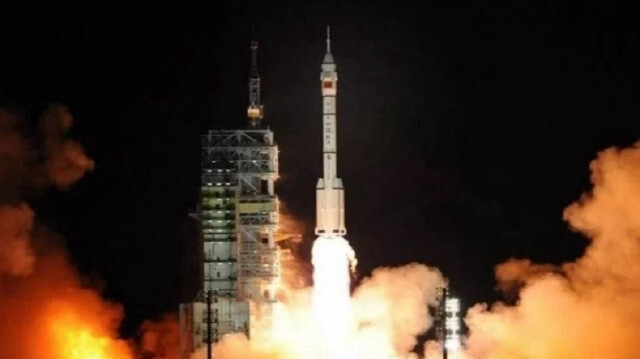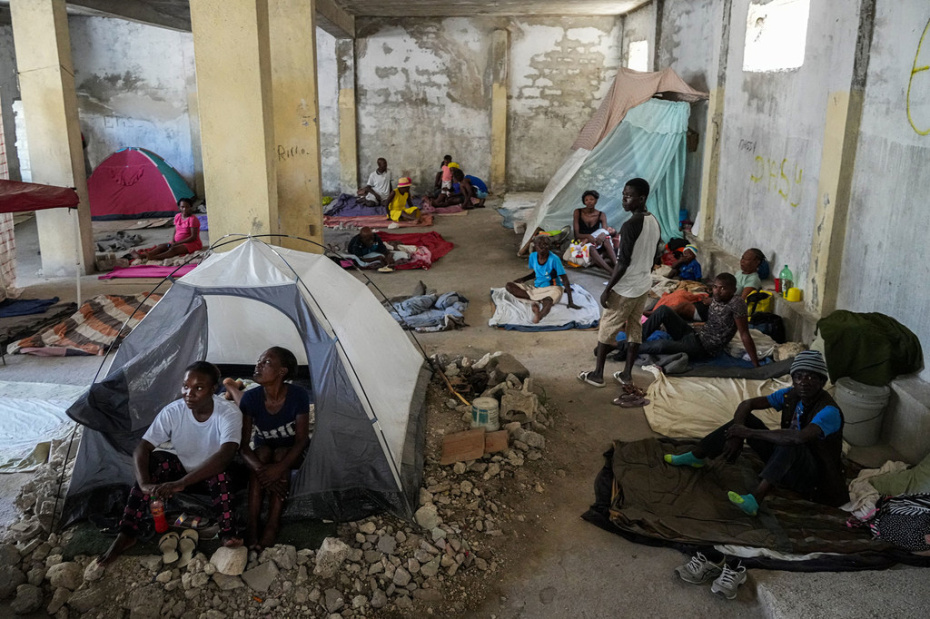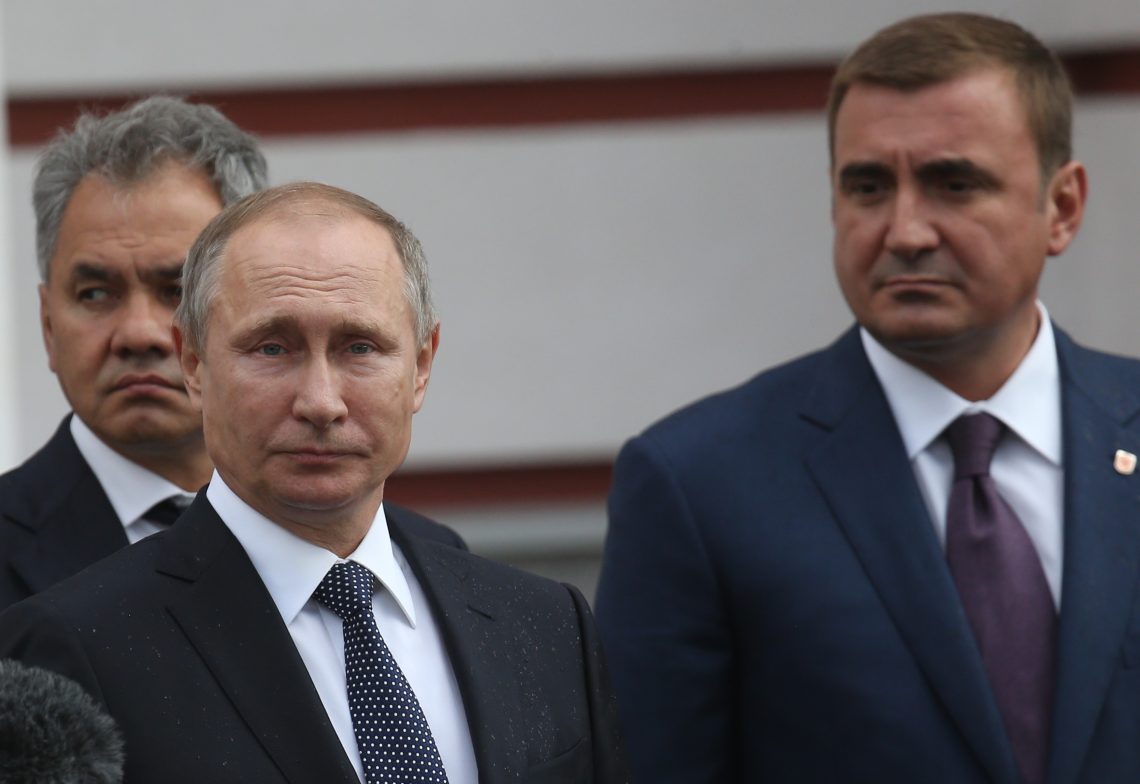Niger’s Military Coup Triggers Child Marriages, Sex Work in Neighboring Countries

Girl refugees from Niger now living in Benin, often end up as child brides. Graphic: IPS
COTONOU/BENIN , Apr 26 2024 (IPS) - A group of young girls aged between 15 and 17 sit tight, following attentively a lesson being taught by a Mualim (Islamic teacher) in a makeshift madrassah (Qur’anic school) located in one of the impoverished townships of Benin’s economic capital, Cotonou. They arrived in Benin recently, fleeing poverty, hunger, climate change, and rising insecurity in their home country, Niger, in the aftermath of the military coup that toppled democratically-elected president Mohamed Bazoum.
Among them are Saida, 15, and Aminata, 16, who are already “married” to Abdou, 22, and Anwar, 25, two Niger youths who have been living in Benin for some time. The lessons are over and Saida heads outside the overcrowded compound where her husband, Abdou, came to pick up his wife on a rundown motorbike.
“She has not been feeling well lately and I think she might be pregnant,” Abdou says without embarrassment. Asked about the circumstances leading to the couple becoming husband and wife, he says: “If in Benin or where you come from, this seems strange, it is normal in Niger for a young girl to become someone’s wife as soon as she reaches 15.”
Niger has one of highest prevalence rates of child marriages in the world, where 76% of girls are married before their 18th birthday and 28% are married before the age of 15, according to Girls Not Brides figures.
Child marriage is most prevalent in Maradi (where 89% of women aged 20–24 were already married by age of 18), Zinder (87%), Diffa (82%) and Tahoua (76%). Girls as young as 10 years old in some regions are married, and after the age of 25, only a handful of young women are unmarried, according to the Girls Not Brides statistics.
Steady increase
However, Abdou says there has been a steady increase in such cases since the military coup due to the social and economic meltdown triggered by regional and international sanctions, which left Niger’s economy hanging in balance. France, a former colonial power, suspended development and budget aid to Niger, vowing not to recognize the new military authorities. In 2021, The French Development Agency (AFD) committed €97 million to Niger. Moreover, the World Bank recently warned that 700,000 more people will fall into extreme poverty this year in Niger. In addition, nearly two million children could be out of school, including 800,000 girls.
Multiple suspensions of development aid from several countries and organizations will result in a shortfall of nearly US$1.2 billion in 2024 (more than 6% of the country’s GDP).
“Life has become unlivable since the coup and the closure of borders. In addition, insecurity has risen, forcing farmers to stay away from their fields. In other parts, climate change has rendered farmland useless; it is a triple tragedy for Niger, but the authorities continue to talk nonsense on TV,” says a Benin-based Islamic teacher identified only as Oumarou, who fled to Cotonou in the aftermath of the coup.
“And as a result, many families are left penniless and dependent on humanitarian assistance. Consequently, some families are seeking help from their relatives and family friends living in Benin and Togo to take their daughters under their care. Niger’s people help each other a lot and prioritize community life over individual interests.
“The girls arrive in these two countries and are quickly dispatched to Niger’s households, where they work as domestic workers without pay. Yes, they don’t get paid because they eat and sleep there and are made to feel as if they are part of the family.”
However, Oumarou says that as time goes by, these people begin to feel that they can no longer carry the burden. That is where they pass a message through the elders to Niger youths who want a wife to come and discuss.
Suitors wanted
“As soon as a suitor is found, we inform the girls’ parents, who, in most cases, do not hesitate to allow the marriage to proceed. As God-fearing people, we cannot let the youth take a girl without doing a formal religious ceremony.
Asked if he was aware that he was committing a crime by acting as an accomplice to child marriages, he became defensive and politicized the issue: “What’s criminal and illegal in that procedure? How can you describe our good gesture to help these poverty-stricken girls rebuild their lives as a crime?
“Okay, if it’s indeed a crime. How do you say about France, which has been stealing our natural resources, notably our uranium, for decades without giving us anything in return? And what about the crimes committed by the West during the colonial era in Africa? Did anyone investigate those crimes and bring the perpetrators to book or make reparations for what they did?” the man said, storming out of the room where the interview was taking place.
However, not everyone in Niger is God-fearing and therefore does not follow the religious procedure. Anwar says her wife told him that she owes him her life after rescuing her from the abusive family where she was working as a donkey.
“I have been taking care of her ever since as a wife and a little sister. I don’t need anyone’s permission or blessings to make her my wife. We have been living under the same roof since last year and that’s a sign of marriage,” he says with a wide smile.
Aminata describes the hell she went through while working for one of these families. “They make you work like a slave, right from Fajr [Islamic dawn prayer] up to Isha [evening prayer] and even beyond. It’s very stressful. Most of the time, you don’t even eat well. They keep yelling at you whenever you make a slight mistake. Anwar is a good man and a caring husband,” she says through a translator.
Anwar says most of these girls do not have a formal (western) education. “That’s why they cannot understand French. They only speak their vernacular language and some Arabic because they only attend Qur’anic school.”
Niger has one of the highest illiteracy rates in the world, and very few girls attend formal school, as priority is given to boys. The Niger literacy rate for 2021 was 37.34%, a 2.29% increase from 2018.
Factors that contribute to this, including high dropout rates, high illiteracy rates, insufficient resources and infrastructure, unqualified teachers, weak local governance structures, and high vulnerability to instability, have been blamed for the low level of educational attainment, according to the United States Agency for International Development (USAID).
“I want to ensure that she gets a good education now that she is in Benin, far away from that rotten country, where the system does not allow girls, especially in the rural areas, to attend school,” Anwar, who himself did not finish high school, says.
Niger girls no longer “God-fearing”?
While child brides jostle for makeshift husbands to take care of them away from their impoverished and famine-hit country, in other parts of Benin, street life has become the way of survival for some Niger women. “Niger men used to mock us, saying that their women were God-fearing and not immoral like us. Now the trend has been reversed. Look at the way those two Niger girls out there are shoving for a wealthy client,” Susan, a Beninese sex worker, says.
She claims the girls arrive in the “workplace” every evening well covered from head to toe but take it off and put on some sexy clothes, only to wear them again after the end of the shift. “Now, who fears God the most? The hypocrites or the people like us who have nothing to hide?”
Prostitution is illegal but remains prevalent in big cities and near major mining and military sites. UNAIDS estimates there are 46,630 sex workers in the country. Some sources say poverty, forced marriages, rising insecurity, and climate change continue to push many girls into prostitution, sometimes with the complicity of their families and marabouts (witchdoctors).
A source close to Nigerian and Ivorian pimping syndicates says there is a huge appetite for Niger girls in several countries across the region, including Nigeria, Côte d’Ivoire, Benin, and Ghana. Asked why it is the case, the source says: “From what I heard, girls from other countries, including Benin, Togo, Ghana, and Nigeria, have been used many times and are big-headed, while Niger girls seem fresh, disciplined, respectful, and docile. That’s why they make good wives. The demand has been growing since the coup.”
The source says the three countries (Mali, Burkina Faso, and Niger) desire to quit the regional bloc, Ecowas, will have a negative effect on the sex trafficking business as it will curtail the free movement of people and goods across the region. According to a 2022 report by the International Organisation for Migration (IOM), women and girls constitute 69% of victims and survivors of trafficking in Niger.
While Niger’s military authorities reinforce their grip on power and castigate the West’s neo-colonialist and imperialist attitude and Ecowas’ interference in Niger’s internal affairs, life seems to be getting harder in this uranium-producing West African nation, forcing thousands of underage girls and women to seek a better life elsewhere.
A researcher who recently returned to Benin from Niger says: “You must live in Niger right now to understand what is going on there. Forget what you see on state TV. If residents of the big cities, like the capital Niamey, are trying harder to stay alive, many people are hopeless in the countryside because the humanitarian situation is terrific.
“Those who say development aid does not work are lying because they have never been on the ground to see for themselves.”
Note: The names have been changed to protect their identities.
IPS UN Bureau Report











 Vladimir Putin has no true deputy or natural heir. Those today rumored to be candidates for succession, like Tula Oblast Governor Alexey Dyumin (R), can quickly become disfavored, as Defense Minister Sergei Shoigu (L) purportedly was after the invasion of Ukraine. © Getty Images
Vladimir Putin has no true deputy or natural heir. Those today rumored to be candidates for succession, like Tula Oblast Governor Alexey Dyumin (R), can quickly become disfavored, as Defense Minister Sergei Shoigu (L) purportedly was after the invasion of Ukraine. © Getty Images